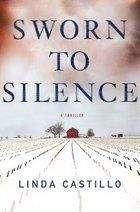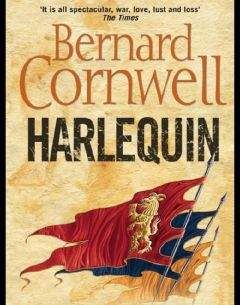Michael Ondaatje - The English Patient

Скачивание начинается... Если скачивание не началось автоматически, пожалуйста нажмите на эту ссылку.
Жалоба
Напишите нам, и мы в срочном порядке примем меры.
Описание книги "The English Patient"
Описание и краткое содержание "The English Patient" читать бесплатно онлайн.
“So you have run me to earth.”
“I came because of the girl. I knew her father. The last person I expected to find here in this shelled nunnery was Count Ladislaus de Almásy. Quite honestly, I’ve become more fond of you than most of the people I worked with.”
The rectangle of light that had drifted up Caravaggio’s chair was framing his chest and head so that to the English patient the face seemed a portrait. In muted light his hair appeared dark, but now the wild hair lit up, bright, the bags under his eyes washed out in the pink late daylight.
He had turned the chair around so he could lean forward on its back, facing Almásy. Words did not emerge easily from Caravaggio. He would rub his jaw, his face creasing up, the eyes closed, to think in darkness, and only then would he blurt out something, tearing himself away from his own thoughts. It was this darkness that showed in him as he sat in the rhomboid frame of light, hunched over a chair beside Almásy’s bed. One of the two older men in this story.
“I can talk with you, Caravaggio, because I feel we are both mortal. The girl, the boy, they are not mortal yet. In spite of what they have been through. Hana was greatly distressed when I first met her.”
“Her father was killed in France.”
“I see. She would not talk about it. She was distant from everybody. The only way I could get her to communicate was to ask her to read to me.… Do you realize neither of us has children?”
Then pausing, as if considering a possibility.
“Do you have a wife?” Almasy asked.
Caravaggio sat in the pink light, his hands over his face to erase everything so he could think precisely, as if this was one more gift of youth that did not come so easily to him any longer.
“You must talk to me, Caravaggio. Or am I just a book? Something to be read, some creature to be tempted out of a loch and shot full of morphine, full of corridors, lies, loose vegetation, pockets of stones.
“Thieves like us were used a great deal during this war. We were legitimized. We stole. Then some of us began to advise. We could read through the camouflage of deceit more naturally than official intelligence. We created double bluffs. Whole campaigns were being run by this mixture of crooks and intellectuals. I was all over the Middle East, that’s where I first heard about you. You were a mystery, a vacuum on their charts. Turning your knowledge of the desert into German hands.”
“Too much happened at El Taj in 1939, when I was rounded up, imagined to be a spy.”
“So that’s when you went over to the Germans.”
Silence.
“And you still were unable to get back to the Cave of Swimmers and Uweinat?”
“Not till I volunteered to take Eppler across the desert.”
“There is something I must tell you. To do with 1942, when you guided the spy into Cairo …”
“Operation Salaam.”
“Yes. When you were working for Rommel.”
“A brilliant man.… What were you going to tell me?”
“I was going to say, when you came through the desert avoiding Allied troops, travelling with Eppler—it was heroic. From Gialo Oasis all the way to Cairo. Only you could have gotten Rommel’s man into Cairo with his copy of Rebecca.”
“How did you know that?”
“What I want to say is that they did not just discover Eppler in Cairo. They knew about the whole journey. A German code had been broken long before, but we couldn’t let Rommel know that or our sources would have been discovered. So we had to wait till Cairo to capture Eppler.
“We watched you all the way. All through the desert. And because Intelligence had your name, knew you were involved, they were even more interested. They wanted you as well. You were supposed to be killed.… If you don’t believe me, you left Gialo and it took you twenty days. You followed the buried-well route. You couldn’t get near Uweinat because of Allied troops, and you avoided Abu Ballas. There were times when Eppler had desert fever and you had to look after him, care for him, though you say you didn’t like him.…
“Planes supposedly ‘lost’ you, but you were being tracked very carefully. You were not the spies, we were the spies. Intelligence thought you had killed Geoffrey Clifton over the woman. They had found his grave in 1939, but there was no sign of his wife. You had become the enemy not when you sided with Germany but when you began your affair with Katharine Clifton.”
“I see.”
“After you left Cairo in 1942, we lost you. They were supposed to pick you up and kill you in the desert. But they lost you. Two days out. You must have been haywire, not rational, or we would have found you. We had mined the hidden jeep. We found it exploded later, but there was nothing of you. You were gone. That must have been your great journey, not the one to Cairo. When you must have been mad.”
“Were you there in Cairo with them tracking me?”
“No, I saw the files. I was going into Italy and they thought you might be there.”
“Here.”
“Yes.”
The rhomboid of light moved up the wall leaving Caravaggio in shadow. His hair dark again. He leaned back, his shoulder against the foliage.
“I suppose it doesn’t matter,” Almásy murmured.
“Do you want morphine?”
“No. I’m putting things into place. I was always a private man. It is difficult to realize I was so discussed.”
“You were having an affair with someone connected with Intelligence. There were some people in Intelligence who knew you personally.”
“Bagnold probably.”
“Yes.”
“Very English Englishman.”
“Yes.”
Caravaggio paused.
“I have to talk to you about one last thing.”
“I know.”
“What happened to Katharine Clifton? What happened just before the war to make you all come to the Gilf Kebir again? After Madox left for England.”
I was supposed to make one more journey to the Gilf Kebir, to pack up the last of the base camp at Uweinat. Our life there was over. I thought nothing more would happen between us. I had not met her as a lover for almost a year. A war was preparing itself somewhere like a hand entering an attic window. And she and I had already retreated behind our own walls of previous habit, into seeming innocence of relationship. We no longer saw each other very much.
During the summer of 1939 I was to go overland to the Gilf Kebir with Gough, pack up the base camp, and Gough would leave by truck. Clifton would fly in and pick me up. Then we would disperse, out of the triangle that had grown up among us.
When I heard the plane, saw it, I was already climbing down the rocks of the plateau. Clifton was always prompt.
There is a way a small cargo plane will come down to land, slipping from the level of horizon. It tips its wings within desert light and then sound stops, it drifts to earth. I have never fully understood how planes work. I have watched them approach me in the desert and I have come out of my tent always with fear. They dip their wings across the light and then they enter that silence.
The Moth came skimming over the plateau. I was waving the blue tarpaulin. Clifton dropped altitude and roared over me, so low the acacia shrubs lost their leaves. The plane veered to the left and circled, and sighting me again realigned itself and came straight towards me. Fifty yards away from me it suddenly tilted and crashed. I started running towards it.
I thought he was alone. He was supposed to be alone. But when I got there to pull him out, she was beside him. He was dead. She was trying to move the lower part of her body, looking straight ahead. Sand had come in through the cockpit window and had filled her lap. There didn’t seem to be a mark on her. Her left hand had gone forward to cushion the collapse of their flight. I pulled her out of the plane Clifton had called Rupert and carried her up into the rock caves. Into the Cave of Swimmers, where the paintings were. Latitude 23°30’ on the map, longitude 25°15’. I buried Geoffrey Clifton that night.
Was I a curse upon them? For her? For Madox? For the desert raped by war, shelled as if it were just sand? The Barbarians versus the Barbarians. Both armies would come through the desert with no sense of what it was. The deserts of Libya. Remove politics, and it is the loveliest phrase I know. Libya. A sexual, drawn-out word, a coaxed well. The b and the y. Madox said it was one of the few words in which you heard the tongue turn a corner. Remember Dido in the deserts of Libya? A man shall be as rivers of water in a dry place.…
I do not believe I entered a cursed land, or that I was ensnared in a situation that was evil. Every place and person was a gift to me. Finding the rock paintings in the Cave of Swimmers. Singing “burdens” with Madox during expeditions. Katharine’s appearance among us in the desert. The way I would walk towards her over the red polished concrete floor and sink to my knees, her belly against my head as if I were a boy. The gun tribe healing me. Even the four of us, Hana and you and the sapper.
Everything I have loved or valued has been taken away from me.
I stayed with her. I discovered three of her ribs were broken. I kept waiting for her wavering eye, for her broken wrist to bend, for her still mouth to speak.
How did you hate me? she whispered. You killed almost everything in me.
Katharine … you didn’t—
Hold me. Stop defending yourself. Nothing changes you.
Her glare was permanent. I could not move out of the target of that gaze. I will be the last image she sees. The jackal in the cave who will guide and protect her, who will never deceive her.
There are a hundred deities associated with animals, I tell her. There are the ones linked to jackals—Anubis, Duamutef, Wepwawet. These are creatures who guide you into the afterlife—as my early ghost accompanied you, those years before we met. All those parties in London and Oxford. Watching you. I sat across from you as you did schoolwork, holding a large pencil. I was there when you met Geoffrey Clifton at two a.m. in the Oxford Union Library. Everybody’s coats were strewn on the floor and you in your bare feet like some heron picking your way among them. He is watching you but I am watching you too, though you miss my presence, ignore me. You are at an age when you see only good-looking men. You are not yet aware of those outside your sphere of grace. The jackal is not used much at Oxford as an escort. Whereas I am the man who fasts until I see what I want. The wall behind you is covered in books. Your left hand holds a long loop of pearls that hangs from your neck. Your bare feet picking their way through. You are looking for something. You were more plump in those days, though aptly beautiful for university life.
There are three of us in the Oxford Union Library, but you find only Geoffrey Clifton. It will be a whirlwind romance. He has some job with archaeologists in North Africa, of all places. “A strange old coot I’m working with.” Your mother is quite delighted at your adventure.
But the spirit of the jackal, who was the “opener of the ways,” whose name was Wepwawet or Almásy, stood in the room with the two of you. My arms folded, watching your attempts at enthusiastic small talk, a problem as you both were drunk. But what was wonderful was that even within the drunkenness of two a.m., each of you somehow recognized the more permanent worth and pleasure of the other. You may have arrived with others, will perhaps cohabit this night with others, but both of you have found your fates.
At three a.m. you feel you must leave, but you are unable to find one shoe. You hold the other in your hand, a rose-coloured slipper. I see one half buried near me and pick it up. The sheen of it. They are obviously favourite shoes, with the indentation of your toes. Thank you, you say accepting it, as you leave, not even looking at my face.
I believe this. When we meet those we fall in love with, there is an aspect of our spirit that is historian, a bit of a pedant, who imagines or remembers a meeting when the other had passed by innocently, just as Clifton might have opened a car door for you a year earlier and ignored the fate of his life. But all parts of the body must be ready for the other, all atoms must jump in one direction for desire to occur.
I have lived in the desert for years and I have come to believe in such things. It is a place of pockets. The trompe l’oeil of time and water. The jackal with one eye that looks back and one that regards the path you consider taking. In his jaws are pieces of the past he delivers to you, and when all of that time is fully discovered it will prove to have been already known.
Her eyes looked at me, tired of everything. A terrible weariness. When I pulled her from the plane her stare had tried to receive all things around her. Now the eyes were guarded, as if protecting something inside. I moved closer, and sat on my heels. I leaned forward and put my tongue against the right blue eye, a taste of salt. Pollen. I carried that taste to her mouth. Then the other eye. My tongue against the fine porousness of the eyeball, wiping off the blue; when I moved back there was a sweep of white across her gaze. I parted the lips on her mouth, this time I let the fingers go in deeper and prised the teeth apart, the tongue was “withdrawn,” and I had to pull it forward, there was a thread, a breath of death in her. It was almost too late. I leaned forward and with my tongue carried the blue pollen to her tongue. We touched this way once. Nothing happened. I pulled back, took a breath and then went forward again. As I met the tongue there was a twitch within it.
Then the terrible snarl, violent and intimate, came out of her upon me. A shudder through her whole body like a path of electricity. She was flung from the propped position against the painted wall. The creature had entered her and it leapt and fell against me. There seemed to be less and less light in the cave. Her neck flipping this way and that.
I know the devices of a demon. I was taught as a child about the demon lover. I was told about a beautiful temptress who came to a young man’s room. And he, if he were wise, would demand that she turn around, because demons and witches have no back, only what they wish to present to you. What had I done? What animal had I delivered into her? I had been speaking to her I think for over an hour. Had I been her demon lover? Had I been Madox’s demon friend? This country—had I charted it and turned it into a place of war?
It is important to die in holy places. That was one of the secrets of the desert. So Madox walked into a church in Somerset, a place he felt had lost its holiness, and he committed what he believed was a holy act.
When I turned her around, her whole body was covered in bright pigment. Herbs and stones and light and the ash of acacia to make her eternal. The body pressed against sacred colour. Only the eye blue removed, made anonymous, a naked map where nothing is depicted, no signature of lake, no dark cluster of mountain as there is north of the Borkou-Ennedi-Tibesti, no lime-green fan where the Nile rivers enter the open palm of Alexandria, the edge of Africa.
Подписывайтесь на наши страницы в социальных сетях.
Будьте в курсе последних книжных новинок, комментируйте, обсуждайте. Мы ждём Вас!
Похожие книги на "The English Patient"
Книги похожие на "The English Patient" читать онлайн или скачать бесплатно полные версии.
Мы рекомендуем Вам зарегистрироваться либо войти на сайт под своим именем.
Отзывы о "Michael Ondaatje - The English Patient"
Отзывы читателей о книге "The English Patient", комментарии и мнения людей о произведении.







